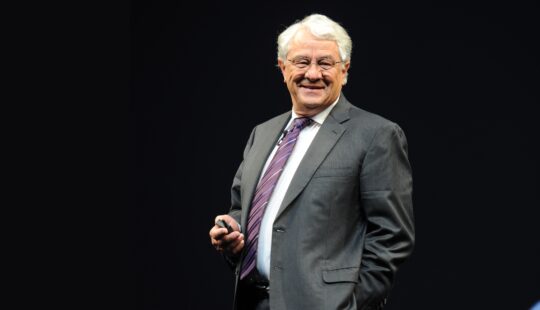In a worthy send-off for a true great, at the farewell event for SAP co-founder and long-serving SAP Supervisory Board chairman Hasso Plattner, German Chancellor Olaf Scholz praised him for his life’s work.
“An incredible global success story made in Germany.” This is how Scholz opened his speech at the farewell event in honor of SAP’s last serving co-founder, Hasso Plattner. After more than 20 years as its chairman, Plattner had stepped down from the SAP Supervisory Board at the Annual General Meeting of Shareholders on May 15 and handed the reins to his successor, Finnish-born Pekka Ala-Pietilä.
Plattner, Scholz said, has been a key architect of SAP’s success as one of its co-founders, a boundless source of ideas and energy, its CTO, CEO, and then, for more than 20 years, chairman of the SAP Supervisory Board. He has written history in terms of economic development and globalization. “And, today, the entire global economy runs on SAP software,” he said.
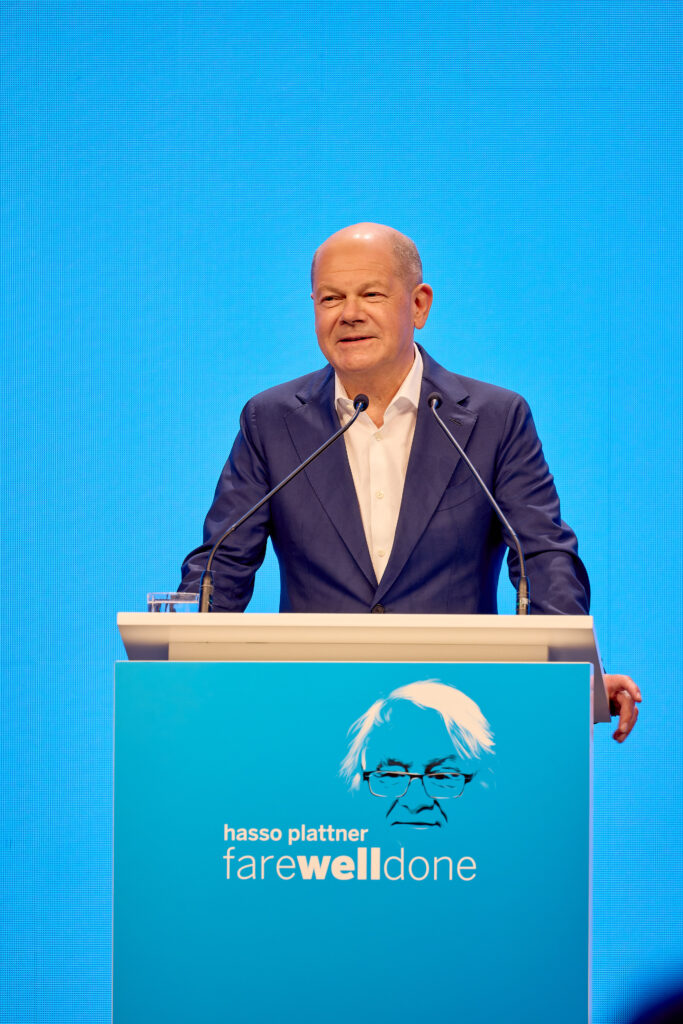
But he did not do it alone, Scholz continued. Rather, as was characteristic of Plattner, his every move was made in a spirit of productive competition with others. When Plattner founded SAP with four former IBM colleagues in 1972, he dreamed of one day employing 100 people. Now, SAP has 110,000 employees across the world, all inspired and motivated by Plattner’s “constant and unstoppable drive and energy.”
Scholz also quoted a wise observation of Plattner’s that served as a timely reminder for him: “You can’t put off making changes that need to happen for too long. If you do, this will eventually take its toll and then you’ll have less energy to get the job done.” Innovation was an opportunity, not a threat, said Scholz, adding that, today, artificial intelligence has the potential to inject brand-new momentum into SAP.
Some 4,000 guests – including 3,500 SAP employees – gathered at the SAP Arena in Mannheim, Germany, on May 16 to say goodbye to Plattner. German TV presenter Günther Jauch hosted the event and, in honor of avid rock fan Plattner, musical entertainment was provided by American singer-songwriter Anastacia, who was accompanied by the SAP Symphony Orchestra.
“Zigzag Like a Rabbit”
“We managed to keep up with most trends,” said Plattner, explaining what had made SAP so successful. And although things did not always go to plan, he recalled, “when we did set off on the wrong track, we realized in time and corrected our course.”
The most important thing, he said, was to avoid being too impatient or single-minded about pursuing a new strategy. “You need to be able to zigzag like a rabbit.”
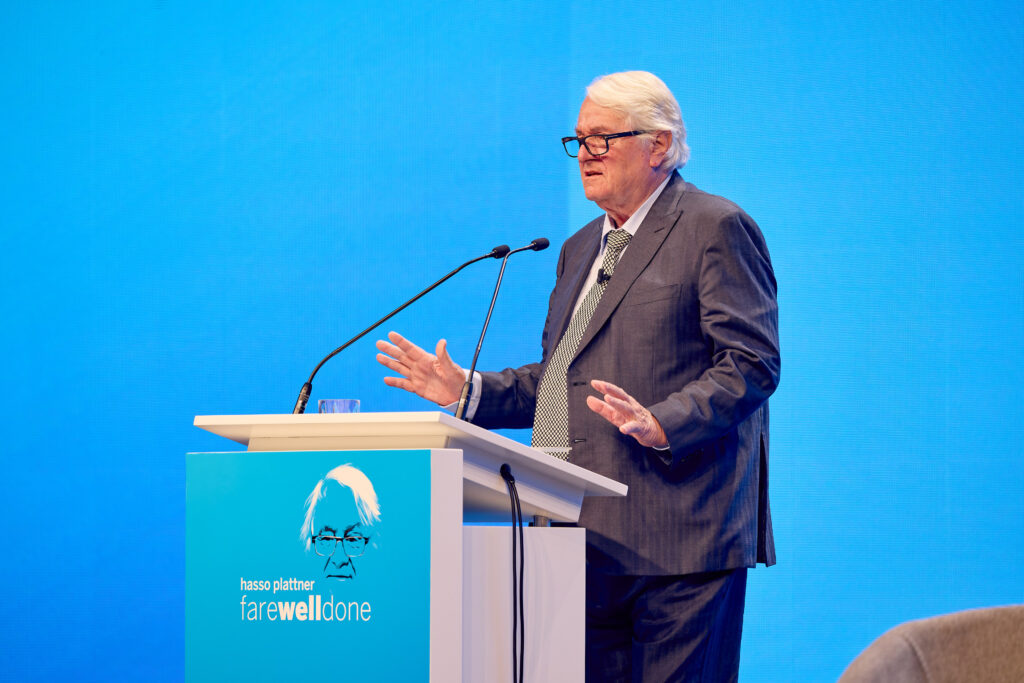
“He Rocked It!”
How, asked SAP CEO Christian Klein in his farewell speech, could he possibly do justice to all of Plattner’s achievements in just 10 minutes? “My kids would say, ‘He rocked it!’” All five of SAP’s co-founders, driven by the desire to create something entirely new, had shown boundless courage in striking out on their own more than half a century ago.
Plattner was the epitome of what SAP must never be allowed to lose, said Klein, namely “a steadfast focus on customers and the ability to listen to and co-innovate with them.”
Klein spoke about the lasting impact Plattner’s global mindset had on SAP. “He drove SAP’s expansion across the world; today, we do business in more than 130 countries, and that is down to our founders and to Hasso.”
The success Plattner orchestrated for SAP in the United States is particularly symbolic of his tireless efforts to push the boundaries, said SAP Supervisory Board member Aicha Evans. He also stood for a future, she said, in which technology and humanity went hand in hand.
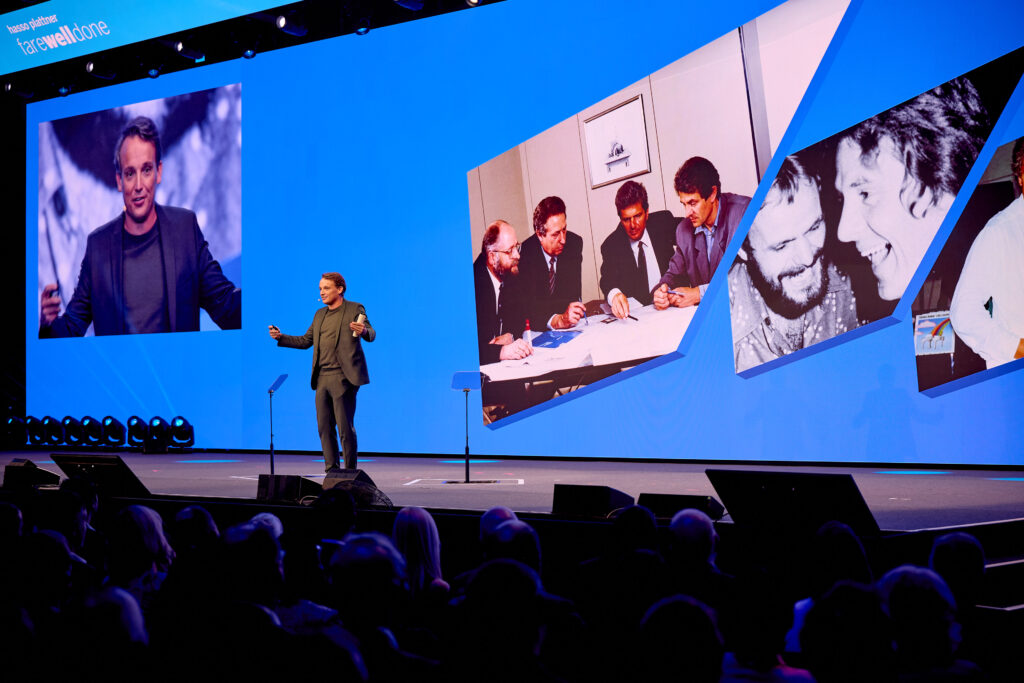
Dietmar Hopp: Long-Time Friend and Colleague
Among the audience members was Dietmar Hopp, one of SAP’s co-founders and a long-time friend and colleague of Plattner. “Dietmar was a huge influence on me,” said Plattner. “Most importantly of all, he taught me to work with customers. That changed the way I thought. I made it my mission to look in all areas of my life for ways to use software to improve people’s lives.”
Ambition and rivalry are part of the founders’ legacy, too. Many a racket was thrown in frustration when Hopp and Plattner faced off on the tennis court, recalled Klein. But Plattner had also given him this advice: “It’s important to win, but SAP is about more than winning; it’s also about helping others.”
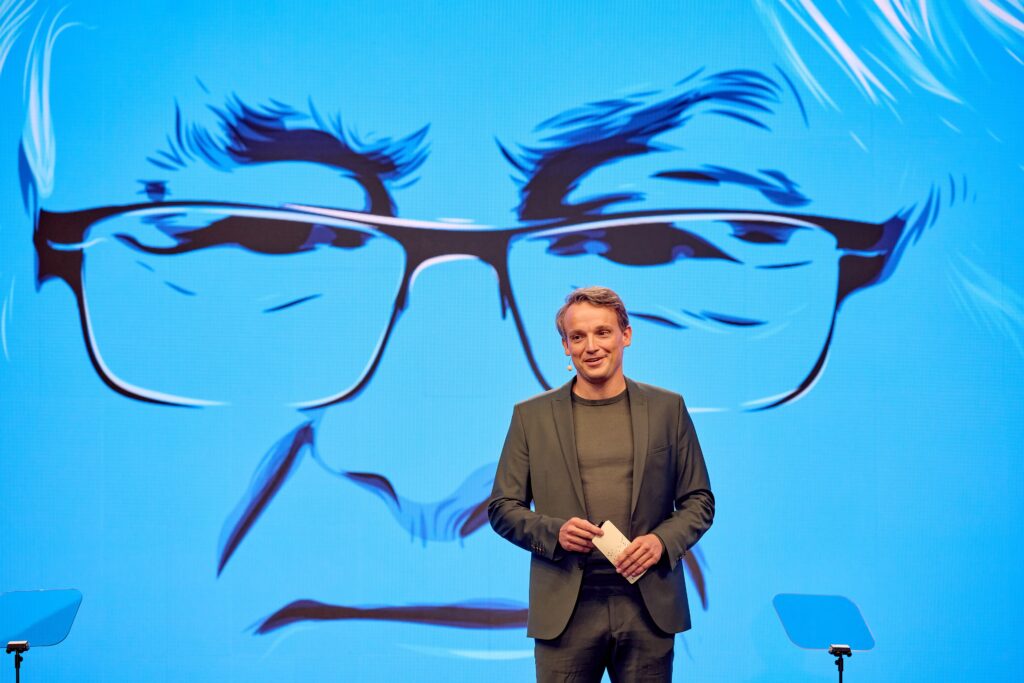
Philanthropist and Patron of Science
The Prime Minister of the State of Baden-Württemberg, Winfried Kretschmann, addressed the audience in a video message. As well as praising Plattner’s entrepreneurial spirit and creativity, Kretschmann paid tribute to his “immense sense of responsibility beyond the realms of business – particularly in education, art, and sport.”
Alongside his business career, Plattner always had a close affinity with research and development, said Kretschmann. In 1998, he founded the Hasso Plattner Institute (HPI) at the University of Potsdam, near Berlin.
As well as generously supporting educational and cultural causes, Plattner developed a particular love of art. One of the projects he funded was the reconstruction of a palace in the historic center of Potsdam that is now the Museum Barberini and home to an impressive collection of Impressionist works.
“Your hometown of Potsdam means the world to you,” said Scholz, describing Plattner’s work as a patron and philanthropist as “instrumental in helping Potsdam blossom and flourish over recent decades.”
Scholz added that he had no doubt whatsoever that Plattner would continue to hatch new ideas, make bold plans, and drive ambitious projects. “I believe that is simply the person you are. With or without an official role, it’s what you do.”
Photography courtesy Ingo Cordes.

